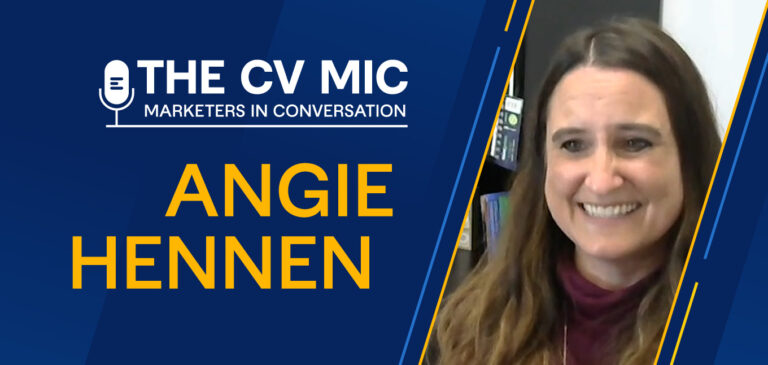It can be scary when you make a mistake as a freelancer. It’s hard not to think about the fact that you’re not on salary or protected by human resources. That being said, it’s really important to stay communicative with your clients to keep the workflow smooth and the relationship healthy.
Let’s break down the best way to be professional when you make a mistake.
How to professionally admit mistakes and missteps to clients
Decades later, that situation still stands out, because it taught me a valuable lesson, one that I observe as an independent content producer. Namely, always communicate with clients especially if a problem crops up, you make an error or miss a deadline. Doing so builds a client’s trust and confidence in you.

Don’t stay silent
My late husband was an outstanding newspaper editor. Early in our marriage, he launched an editorial job search among New England newspapers by topping his cover letters with the words “I made a mistake …” The letter explained that he wasn’t perfect, but the articles he edited were as close to error-free as possible.
This caught the eyes of many publishers and managing editors, who liked the humor. They appreciated an editor with the nerve to admit he wasn’t above making the occasional mistake but had methods in place to ensure mostly clean copy.
While admitting something like this is a great opening for a job-seeking cover letter, it can be more difficult for those of us who create content for a living as independent contractors.
Nod if any of this seems familiar. We hesitate when requesting deadline extensions. We go back and forth about asking for clarification. We shouldn’t need to do any of this. We’re professionals. We ALWAYS meet deadlines. And we ALWAYS understand every single assignment that ends up in our laps. And we always turn in error-free copy.
Until we don’t. And that’s when cognitive dissonance rears its head.
Cognitive dissonance occurs when a held belief conflicts with hardcore reality. Like this:
- The belief: I am a professional, competent content producer.
- The reality/realities: I don’t understand the assignment. There’s more to the project than what I thought, so I need more time. I’m confused.
Because we want to feel better about ourselves, we do everything we can to hang onto proof of our proficiency. So we don’t say anything to clients. Staying silent means we don’t come across as inept by acknowledging our weaknesses. We continue to delude ourselves into thinking that everything is great, and that we’re great, too.
But in the real world, misunderstanding project parameters can result in something that has nothing to do with the client’s vision. Or missing a submission date might throw someone else’s editorial content calendar into disarray. Basically, staying quiet for fear of being viewed as incompetent could convert that fear into reality. And it means the client won’t trust you and might not hire you again.
If it isn’t clear up to this point, I’ll repeat it. Always, ALWAYS communicate with the client, even if you have to acknowledge a mistake, report a missed deadline or adjust expectations.
Be direct
When sharing a problem, you don’t have to get down on your knees and beg for forgiveness.
Here’s what to do:
- Be professional, direct, and honest. Explain the issue, the cause, and how you’ll rectify it. If you need a deadline extension, outline the circumstances, and offer a new deadline. If you inadvertently made a mistake or error, own up to it and explain how you’ll avoid similar situations in the future. The last thing you need is a panicked client when they discover the error last minute on their own.
- Eliminate misunderstandings through repetition. Before signing off any project, repeat the parameters back to the client. For instance, saying “here’s how I understand this. You want me to …” lets the client know you’re listening, and also gives them license to clarify.
- Query, query, query. If confusion crops up while you’re writing a blog, white paper or brochure, ask for explanations. Don’t assume. Question any inconsistencies and explain potential struggles you’re experiencing. Keep asking until you are clear on what’s needed.
- Report problems immediately. While it’s great when projects move forward without a hitch, this doesn’t always happen. Information might not be available, or a specific content format just might not work. Share this with the client early on, so changes can be easily made and implemented.
- Recognize that clients have empathy. Yes, clients are human, too. They know that bad stuff happens. For the most part, they appreciate it when you acknowledge a problem, and discuss steps to rectify it.
Let go of secretiveness
Staying quiet when something goes wrong or extensions are required might seem really, really appealing. But keeping your mouth shut will have long-term ramifications when it comes to your client relationships.
Getting issues out into the open is always better. So tamp down your panic, straighten your shoulders, and explain the situation. Doing so tells clients that you’re not just a terrific writer who produces stellar content. But you’re a trustworthy, honest one, as well.
We’ve got your back
If you’re feeling unstable or unprotected in the freelance world, you’re not alone. At ClearVoice, join our talent network and we’ll make sure to expand your opportunities and pair you with the best brands that fit your expertise and skill set.





